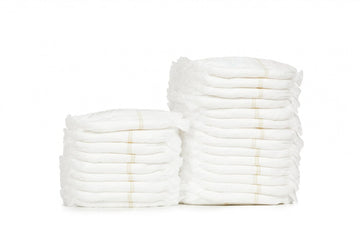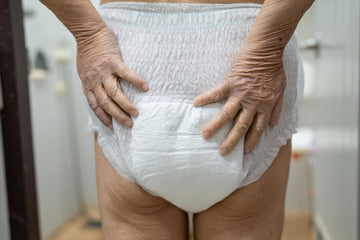Bladder inflammation, commonly called cystitis, impacts how the bladder works. Interstitial cystitis is a circumstance causing bladder aches and signs like inflammation for over six months. It more often than not affects young to middle-aged women, and its exact reason is unknown. It is a diagnosis made by using other conditions. Possible causes encompass infection, autoimmunity, and genetic factors, all of which may additionally trigger irritation. Inflammation performs a key position in interstitial cystitis. Treatment usually includes multiple approaches to stop the cycle of infection. For patients with intense cases of permanent damage, like fibrosis, surgical operation can be needed, but it is reserved for people who don’t respond to other treatments.
What is Bladder Inflammation?
A bladder infection occurs when the bladder wall becomes swollen and irritated, specifically because of infections or irritants. Cystitis can occur suddenly, known as acute cystitis, or chronic, with long-lasting symptoms. This irritation can disrupt normal bladder characteristics and negatively impact a person's quality of life. Understanding the different types of bladder inflammation is important for effective management.
Types of Bladder Inflammation
Acute Cystitis
It is the most common kind of bladder inflammation. It frequently occurs suddenly and is usually caused by bacterial infections of the urinary tract. Symptoms can consist of painful urination, urges to urinate, and pain inside the pelvic area. These signs can be distressing but can typically be handled quickly with antibiotics.
Interstitial Cystitis
It is a persistent condition that involves ongoing bladder pain, urgency, and frequent urination without apparent bacterial contamination. The specific cause of IC is poorly understood, making it challenging to diagnose and deal with. People with IC might also experience flare-ups triggered by stress, certain meals, or hormonal imbalances. Managing interstitial cystitis frequently requires a combination of dietary changes, physical therapy, and pain relief strategies.
Symptoms of Bladder Inflammation
The symptoms include painful urination, frequent urges, abdominal pain, and foul-smelling or cloudy urine.
Painful or Burning Urination:
Dysuria is a key sign of bladder inflammation, wherein urinating causes an ache or a burning feeling. This occurs while the bladder lining is irritated, frequently because of infections. The pain can vary; however, it is a common symptom of cystitis or UTIs. Treatment generally involves antibiotics or medicinal drugs to ease the pain.
Increased Frequency of Urination:
Cystitis can cause you to urinate more frequently, even if your bladder is not full. This happens because the indignant bladder sends frequent signals to urinate. The condition may be uncomfortable and interrupt your habitual urination. It’s commonly connected to urinary tract infections and may be handled with antibiotics and fluids.
Abdominal or Lower Back Pain:
Pain in the stomach or lower back is a common symptom of bladder infection. This pain is often felt near the bladder or pelvic area and might spread to the lower back. The discomfort comes from the bladder's inflammation. Treating the contamination usually facilitates relieving this ache.
Smelly, Cloudy, or Blood-Tinged Urine:
Bladder irritation can make urine smell terrible, appear cloudy, or have blood in it. The foul odor comes from bacteria inside the bladder, while the cloudiness or blood can be due to the presence of white or red blood cells. Antibiotics can help clear the infection, returning the urine to normal.
Causes of Bladder Inflammation
It can happen due to infections, irritants, certain medications, radiation therapy, or problems from other medical conditions.
Drugs and Radiation Therapy
Specific treatments, like chemotherapy capsules and radiation therapy, can aggravate or inflame the bladder. Chemotherapy drugs, filtered through the kidneys, can worsen the bladder lining when passed in urine. Radiation therapy, used to treat cancers in the pelvic vicinity, can damage the bladder tissue and cause infection. Both treatments may additionally lead to symptoms like painful urination and frequent urination. These side effects are typically controlled with medicines that assist in lessening bladder infection and ease soreness.
Bladder Infection:
Cystitis is the main cause of infection and is normally caused by E. coli bacteria. These microorganisms enter the urinary tract through the urethra and grow within the bladder, leading to inflammation. Poor hygiene, sexual activity, or a weak immune system can raise the chance of infection. Common signs and symptoms encompass pain while urinating, frequent urination, and cloudy or foul-smelling urine. Treatment typically entails antibiotics to clean the contamination and reduce the inflammation.
Hygiene Products and Spermicide Jelly
Personal care products like strong soaps, foaming baths, and sprays can irritate the bladder, inflicting infection and discomfort. These products may also dissatisfy the natural balance of the urinary tract, making it less complicated to get infections. Spermicide jelly, used for start control, also can worsen the bladder or result in infections in a few people. The chemical compounds in these products can disturb the vaginal area and bladder, leading to signs and symptoms of cystitis or urinary tract infections.
Chronic Catheter Use and Complications of Illnesses
Long-term catheter use can irritate the bladder and raise the hazard of contamination. The catheter disrupts the urinary tract's natural defenses, allowing bacteria to enter and develop. Conditions like diabetes or kidney stones can also result in cystitis. Diabetes weakens the immune system, making infections more likely, and kidney stones can cause disease and blockages that contribute to bladder irritation.
Treatment of Bladder Inflammation
It aims to ease symptoms, treat infections, and make lifestyle changes to help heal and prevent future issues.
Antibiotics for Bacterial Cystitis:
It helps eliminate the infection and is the primary treatment for bacterial cystitis. Common antibiotics encompass nitrofurantoin, trimethoprim-sulfamethoxazole, and fosfomycin. The desire for antibiotics relies upon the specific organism and local resistance patterns. Treatment usually lasts three to seven days, depending on the severity of the contamination. Finishing all prescribed antibiotics is essential to prevent the contamination from returning and ensure complete recovery.
Other Treatments:
Treatment for cystitis can change depending on what precipitated it. If medicinal drugs or radiation therapy are in blame, stopping or changing those treatments can help ease symptoms. It's essential to Prevent rashes like hygiene products or spermicides. Catheter care techniques can help reduce irritation in long-term use. It’s also vital to manage underlying situations, like diabetes, to save your cystitis from returning.
Home remedies for Bladder Inflammation
It can assist in relieving cystitis signs and symptoms and aid recovery. Pain relievers like acetaminophen or ibuprofen can ease pain and soreness from bladder inflammation. Drinking lots of water is critical, as it helps flush out bacteria from the urinary tract. It is best to avoid alcohol because it may aggravate the bladder and make symptoms worse.
Unsweetened cranberry juice might also help prevent bacteria from sticking to the bladder wall, lowering the infection hazard. While those treatments can provide alleviation, they should not replace clinical treatment. If symptoms worsen, seeking a doctor for proper diagnosis and care is important.
When to Seek Medical Treatment
Suppose women have back or flank pain, fever, chills, nausea, or vomiting. These symptoms could mean you have a kidney infection, which needs quick treatment. Kidney infections can appear if cystitis is left untreated and can cause severe troubles. It’s crucial not to disregard these symptoms now, as they can suggest worsening contamination that could affect your health. Getting assistance from a doctor is vital for proper prognosis and care.
Conclusion
It is a common condition that can significantly affect daily life. Understanding its causes, signs and symptoms, and remedy options is crucial for effective management. Bacterial infections are the main motive of acute cystitis, while interstitial cystitis provides a more chronic challenge without a clean infectious source. Symptoms along with painful urination, high urgency, and pelvic soreness sign the need for medical attention. Treatment generally includes antibiotics for bacterial infections, ache management, and lifestyle changes. Home treatments and self-care practices can also help recovery. Recognizing severe signs that can indicate complications, along with kidney infections, is critical. Individuals can enhance their quality of life and save from recurrent issues by prioritizing bladder health and seeking well-timed interventions.
FAQ’s
How Do Bladder Problems Start?
Bladder troubles normally begin due to infections (like UTIs), infection from certain chemicals or medications, or underlying situations, such as bladder stones or interstitial cystitis. Poor hygiene and dehydration can also contribute to bladder problems.
What Can I Drink For An Inflamed Bladder?
Drinking lots of water is critical for an infected bladder. Unsweetened cranberry juice can also help prevent microorganisms from sticking to the bladder wall. Herbal teas, like chamomile or peppermint, and avoiding irritants like alcohol or caffeine can offer comfort.
How Do You Confirm A Bladder Infection?
A bladder infection is confirmed through urinalysis, where a urine sample is tested for bacteria, white blood cells, or signs of disease. Sometimes, urine culture or imaging tests like ultrasounds may be used to verify the diagnosis.
What Is The Best Treatment For Bladder Inflammation?
The best treatment for bladder infection depends on the cause. Antibiotics are powerful for bacterial infections. Pain alleviation through medicinal drugs, lifestyle modifications (hydration, weight loss plan), and addressing any underlying conditions are key to dealing with non-infectious bladder inflammation.
What Kind Of Doctor Treats Bladder Problems?
Urologists concentrate on diagnosing and treating bladder issues. They control infections, interstitial cystitis, bladder stones, and incontinence. In some cases, primary care doctors or gynecologists can also be concerned with treatment, especially for infections or mild problems.






